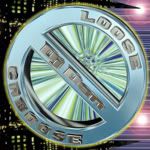RAW on E-Prime, Reality Tunnels, General Semantics, Alfred Korzybski, Maybe Logic, linguistic structures, [BS] Belief Systems, War, the Universe, Mysticism & Science and more.
Thursday, July 30, 2009
Monday, July 20, 2009
Scientific American Magazine on Salvia
Salvia on Schedule: Law, Medicine and a Hallucinogen
Scheduling the mind-altering herb as a controlled substance could slow medical research
By David Jay Brown
From: Scientific American Magazine
As the source of the most powerful natural hallucinogen known, salvia is drawing scrutiny from U.S. authorities who want to restrict this Mexican herb, now used recreationally by some. But neuroscientists worry that controlling it before studies have determined its safety profile is premature and could hamper research of the drug's medicinal value. Increasingly, evidence is piling up that it could lead to new and safer antidepressants and pain relievers, as well as even help in improving treatments for such mental illnesses as schizophrenia and addiction.
The plant, formally known as Salvia divinorum, has a long tradition of shamanic usage by the Mazatec people of central Mexico. Salvinorin A, the primary psychoactive component, is part of a class of naturally occurring organic chemicals called diterpenoids, and it affects neural receptors in the brain similar to those that respond to opiate painkillers such as morphine—but without euphoric and addictive properties. That is because salvinorin A binds mostly to only one type of receptor (the so-called kappa opioid receptor) and not significantly to receptors that could lead to addiction (such as the mu opioid receptor).
As the popularity of salvia has risen over the past 16 years—its psychoactive properties were discovered in 1993 by Daniel Siebert, an independent ethnobotanist based in Malibu, Calif.—calls to treat the plant as an illegal drug have grown louder. Twelve states have recently placed S. divinorum in their most restrictive controlled substance category, and four others have laws restricting sales. The U.S. Drug Enforcement Administration has listed salvia as “a drug of concern” and is looking into the drug to determine whether it should be declared a Schedule I controlled substance, on par with heroin and LSD.
The unusual properties of salvinorin A intrigue scientists. Psychiatric researcher Bruce Cohen and his colleagues at Harvard Medical School have been developing analogues of salvinorin A and studying their possible mood-modulating properties. The team’s work with salvinorin A in animals suggests “that a drug that would block kappa opioid receptors might be an antidepressant drug—probably a nonaddictive one—or a mood stabilizer for patients with bipolar disorder,” Cohen remarks. By activating the kappa opioid receptors, drugs such as salvinorin A could reduce dependence on stimulants and the mood-elevating and mood-rewarding effects of cocaine. Because salvinorin A can produce distortions of thinking and perception, researchers speculate that blocking the receptors might alleviate some symptoms of psychoses and dissociative disorders.
Some investigators, including the team at Harvard, believe that modified forms of salvinorin A could bolster its medicinal value. Tom Prisinzano, a medicinal chemist at the University of Kansas, points out that some chemical transformations of salvinorin A have different pharmacological abilities—such as a longer-lasting action or an enhanced ability to bind to receptors—and no hallucinogenic properties. Modifying its novel structure, he says, “could potentially treat a number of different central nervous system disorders.”
But if salvinorin A becomes a federally scheduled drug, research on it would become “much more difficult,” predicts Rick Doblin, director of the Multidisciplinary Association for Psychedelic Studies, a nonprofit based in Santa Cruz, Calif. Prisinzano agrees, saying that “there will be a lot more paperwork involved,” subsequently making approval for clinical studies harder to obtain. For example, human studies with LSD were essentially blocked for more than 35 years because of federal restrictions, and currently only one human study with LSD is being conducted in the world. As Doblin puts it, approval boards at universities and research institutions view proposals involving criminalized drugs with extreme caution. “And funders are reluctant to look at potentially beneficial uses of drugs of abuse,” he adds.
Right now only two labs conduct human studies with salvinorin A: one run by psychiatric researchers Deepak Cyril D’Souza and Mohini Ranganathan, both at the Yale University School of Medicine, and the other by pharmacologist John Mendelson of the University of California, San Francisco. Both groups are performing preliminary tests to determine how best to administer salvinorin A to human volunteers and collect basic data. D’Souza and Ranganathan argue that scheduling the drug should wait until evidence about its effects and toxicity become clear.
The neuroscience community has yet to throw its collective weight behind formal battles against legal restrictions. “This has been more of a simmering back-burner than a flaming front-burner issue. Still, the issue is a serious one, with implications for policy, drug enforcement and research,” Cohen says. Many people have begun letter-writing campaigns to their representatives in Washington, D.C. Scientists as much as salvia fans undoubtedly hope that such grassroots activity could eventually alter the government’s mind.
Note: This article was originally printed with the title, "Salvia On Schedule."
Top quality Salvia divinorum available at
www.GaianBotanicals.com
Tuesday, July 14, 2009
Christian Rätsch: Interview on mythology, religion and altered states
FREE Mp3 DOWNLOAD
Right click, save target as
In this episode of the psychonautica podcast, Max Freakout interviews author, anthropologist and ethnopharmacologist Dr. Christian Rätsch, they talk about mythology, religion and altered state experiences, myth as a tool for understanding reality, the role of belief and the literal interpretation of Christian scripture, India as a spiritual centre, the growing popularity of ayahuasca ceremonies, the financial crisis and erosion of western values, money as a pathological collective hallucination, the difference between money and value, possible alternatives to the money system, equality and tolerance, unconditional love and freedom, the utter failure of politics and capitalism, the fallacy of dualism, the inevitable failure of hierarchical power structures, the problem of overpopulation, the measures used to deal with overpopulation in rainforest tribal societies, the role of entheogens for spreading awareness, the absence of meaning and message in the psychedelic experience, the mutual co-dependence of matter and mind, the function of shamanism, shamanism as a technology, the potential value of shamanism for western culture, western hierarchical attitudes towards shamanism, the fallacy of organized religious approaches to entheogens such as those of Santo Daime and the UDV, the difference between dualism and polarity, the polarity of mythology and philosophy, the philosophy of Nietzsche, Dionysus and Apollo, reconciling the duality of subjective and objective within science, the abuse of science as a substitute for religion, the illusion of objectivity, the ultimate goal of scientific enquiry, eschatology and 2012, linear and cyclical models of time, the end and beginning of time, inaccuracies of calendars and the shamanic role of visionary art literature and music.
Web links:EROCx1.com
Erowid.org
Psychedelic Salon
Christian Rätsch Homepage
Saturday, July 11, 2009
Dr. Michio Kaku: Physics of the Impossible
Dr. Michio Kaku is a theoretical physicist, best-selling author, and popularizer of science. A fascinating exploration of the science of the impossible.
Friday, July 10, 2009
Albert Hofmann writes to Steve Jobs
From: The Huffington Post

Steve Jobs has never been shy about his use of psychedelics, famously calling his LSD experience "one of the two or three most important things I have done in my life." So, toward the end of his life, LSD inventor Albert Hofmann decided to write to the iPhone creator to see if he'd be interested in putting some money where the tip of his tongue had been.
Hofmann penned a never-before-disclosed letter in 2007 to Jobs at the behest of his friend Rick Doblin, who runs an organization dedicated to studying the medical and psychiatric benefits of psychedelic drugs. Hofmann, a Swiss chemist, died in April 2008 at the age of 102.
See the letter here.
Thursday, July 9, 2009
Terence McKenna: The Ethnobotany of Shamanism

From: The Psychedelic Salon [Subscribe]
FREE MP3' Downloads:
Podcast episode #187 Part 1 [40 MB]
Podcast episode #188 Part 2 [48 MB]
Podcast episode #189 Part3 [46 MB]
Podcast episode #190 Part 4 [40 MB]
PCs - Right click, select option
Macs - Ctrl-Click, select option
Download the complete unedited Mp3 file: HERE
Courtesy of Miguel Fernandes
All quotations are by Terence McKenna
"Most software, I think, is written by freaks."
"What it [investigating psychedelics] really requires is a love of the peculiar, of the weird, the bizarre, the étrange, the freaky and unimaginable."
"Nature and the imagination seem to be the precursors to involvement in the psychedelic experience."
"DMT seems to argue, convincingly I might add, that the world is made entirely of something, for want of a better word, we would have to call magic."
"By manipulating queuing, by manipulating expectation, you can lead people to a fundamental confrontation, not only with themselves, but with the Other."
"What I’m talking about is actually is the Mystery of Being as existential fact. That there is something that haunts this world that can take apart and reduce every single one of us to a mixture of terror and ecstasy, fear and trembling. It is not an idea, that’s the primary thing to bear in mind. It’s an experience."
"Our theories are the weakest part of what we say. What we’re working from is the fact of an experience which we need to make sense of."
"What we call three dimensional space, and what we call the imagination actually have a contiguous and continuous transformation from one into the other, … and THIS is big news!"
"If you play the cultural game, it’s like playing only with clubs or something, or playing only with the red marked cards. You have to play with a full deck, and that includes this pre-linguistic surround in which we are embedded."
"Ultimately, I think, what the psychedelic experience may be is a higher topological manifold of temporality."
"The mind is the cutting edge of the evolving event system."
"I think the cybernetic matrix is a tremendous tool for feminizing, and radicalizing, and psychedelicizing the social matrix. I see computers as entirely feminine."
"The ‘person’ is not an interchangeable part. The ‘citizen’ is. … The person is harking back to a pre-print model. It’s what the hippies were."
"What people notice about [when they are on] LSD is either what’s right or wrong with themselves or how freaky the world is."
"It’s as important to be well informed in this area, if you’re going to do it, as it is to be well informed about procedures in skin diving and that sort of thing if you’re going to do that."
"One of the things that’s so striking about shamanism in the native context is the absence of mental illness."
"Every step into freedom contains within it the potential for greater bondage."
"This is what I talked about last night about the archaic revival as the notion of making a sharp left turn away from the momentum that the historical vehicle wants to follow."
"We now have no choice in the matter of business as usual. There will not, apparently, be business as usual."
"You either have a plan, or you are a part of somebody else’s plan."
"The psychedelic sets you at the beginning of the path, and then people do all kinds of things with it."
"We are reaping the fruits of ten thousand, fifty thousand years of sowing of the fields of mind. And it is being dropped into our laps for us to create human-machine interfacing, control of genetic material, redefinition of social reality, re engineering of languages, revisioning of the planetary ecology, all these things fall upon us."
"I’m fascinated by hallucinations. I mean, to me that is the sina qua non that you’re getting somewhere."
"If you actually look at the etymology of the word ‘hallucination’, what it’s come to mean in English is a delusion. But what it really means in the original language is to wander in the mind. That’s the meaning of ‘hallucination’, to wander in the mind."
"For unknown reasons, there is a tremendous concentration of psychoactive plants on the South American continent. The South American continent has more known hallucinogens than the rest of the planet combined."
"Patanjali specifically says that there are three paths to the goal of yoga. And they are, control of the breath, control of posture, and light-filled herbs. It says it right there. Stanza 6 of the Yoga Sutras of Patanjali."
"Think about this for a moment, we grow so inured to these religious forms, think about the notion of instituting at the center of your religion a rite where you eat your god. ... [This] is probably a memory of a relationship to some kind of a psychedelic experience of some sort."
"I think institutions will inevitably substitute a rite or a ritual for the authentic, for the real McCoy, because then priests can control the pipeline to god, and the parishioner can approach with offerings. But if everybody can have a pipeline to deity, why then the whole priest scam is put out of business."
"Buddhism is a heresy on Hinduism."
"The whole of the Amazonian narcotic complex, as it’s called in the old literature, is based on activation of DMT by one strategy or another."
"I really think there is a very large distinction between synthetic and naturally occurring drugs. … I think that these plants ‘take people’ as much as people take the plants. … When you take one of these ancient, ancient hallucinogens you are locking in to the morphogenic fields of all the people who ever took it."
"All psychedelic explorers should be aware of the concept of what is called a cognitive hallucination. The is a much more insidious phenomenon. This is, quite simply, an out-and-out delusion."
"People are concrescences of ambiguity."
"I think the sitter should be there only if there’s a three dimensional emergency."
"I have never felt that the primary use of these things [psychedelic medicines] was to cure what is called in modern parlance neurosis, what I call unhappiness. It isn’t for that."
"Ayahuasca, in a way, is somehow more open to suggestion. These other things have their own agenda. Ayahuasca will work with you."
"The possibility seems to be that what we call styles, or what we call motifs, are actually categories in the unconscious." [Also see The Art of Steven Rooke.]
"Is there a necessary succession in style, or are these things pure chance?"
"Obviously, it’s some kind of freely commanded modality in the psyche with which we can have a relationship if we will but evolve a control language and a dialogue. And it remains mysterious."
"The psychedelic experience is the beginning of the spiritual path. That’s why it’s not important that yogas’ claim that they can deliver you the psychedelic experience, because it begins with the psychedelic experience, and then you go from there."
"Once you come face-to-face with these psychedelics, the trail ends. You have found the answer. … Now the question is, ‘What the hell do you do with it?’ "
"Once you have the psychedelic tool in hand then some real choices have to be made."
"It puts people who are into this psychedelic thing in an entirely different stance from all other spiritual seekers, because all other spiritual seekers are furiously seeking. Psychedelic people are holding it back with all their power, because they are IN the presence of the Mystery. And then the trick is to get a spigot on it so that it can be turned on and off rather than coming at you like a tidal wave a mile high and twenty miles wide."
"What the churches are peddling is high abstraction, and you really have to work yourself up into a lather to be able to accept that as worthy of that kind of attention. The psychedelic subset of society is into an experience, and it’s accessible."
"The race isn’t to the swift. It’s to the thoughtful."
"There will be difficult moments in a five-gram [mushroom] trip, but on the other hand certain questions will be solved forever for you, because you will validate the existence of this dimension. You will see what your relationship to it is."
"This is a general comment that you should take a committed dose of whatever it is you’re taking so that there is no ambiguity, because there’s nothing worse than a sub-threshold psychedelic experience."
"On ketemine you can get so out there that it is a major intellectual breakthrough to realize that you’re on a drug."
"At the interface of the sayable and the unsayable [in a psychedelic experience] is the novel, the new, the never before seen, said or done. And that’s what I think it’s important to try and bring out, ideas. Because I think we are the animals that bring back ideas."
"Human populations that do not have contact with the psychedelic tremendum are neurotic because they are male ego dominated."
"One way of assessing the toxicity of a drug is how do you feel the next day?"
"If you eat before you sleep after a trip, it won’t be nearly so hard a come-down."
"DMT is the most powerful hallucinogen there is. If it gets stronger than that I don’t want to know about it."
Monday, July 6, 2009
DJ Dan: Future Retro Mix Tapes
FROM: DJ Dan’s Facebook Page
Future Retro is all about paying homage to dance music, keeping this in mind we would like to introduce you to the Future Retro Mixtape Series. In this series DJ Dan takes you on a musical journey of dance music’s infamous past, a time before the massive marketing machine of today’s mixed compilations, mix’s that until now haven’t seen the light of day outside a tape deck, where the parties consisted of a burned out warehouse, a box of records, and thousands of your closest friends. Dan has opened up the archive to pick out, dust off and digitize the most classic tapes from his collection dating all the way back to 1991. We challenge you to do the same, send us your favorite mixtapes that have been sitting in that shoebox in your closet and share with the rest of the Future Retro Community.
To download the Mp3, Right Click on the tape / CD image below and Save target as or you can play the mix from your browser but may take awhile!
Tape #1 - Warehouse Flash Back
Its that time again! Bringing to you another installment of the Future Retro Mixtape Series, in this episode we take you back to 1991 with the legendary DX2 series that DJ Dan did with Ron D Core....CHECK IT!!!
Tape #2 - DX2: VOL 1 (CLICK TO D/L)
Next up in the Mixtape Series we have the legendary "Loose Caboose Mix"!!!
Tape #3 - Loose Caboose (CLICK TO D/L)
We bring to you a little slice of heaven from 1994 with Take A Fix To Funk!!!
Tape #4 - Take A Fix To Funk
for the 5th installment of the mixtape series we bring to you a funk filled house get down from 93....Jolly House Jams
Tape#5 - Jolly House Jams (CLICK TO D/L)
And they keep coming....this week we bring to you House The Discotheque..enjoy!!
Tape #6 - House The Discotheque (CLICK TO D/L)
This week we bring to you the classic 2 part tribute to the hardest working man in show business...James Brown!!
Tape #7 - Tribute To James Brown (CLICK TO D/L)
Part 1
Part 2
Back once again with some funky house from back in the day this week...URB Mix Vol 2
Tape #8 - URB Mix Vol 2 (CLICK TO D/L)
Tape #9 - Spirit Of The Tree (CLICK TO D/L)
This time around we bring you a classic from the Funky Tekno Tribe Days with the Spirit Of The Tree Mixtape
Saturday, July 4, 2009
Thich Nhat Hanh on anger
Further reading...
Thich Nhat Hanh - Anger - Putting Out the Fire of Anger


